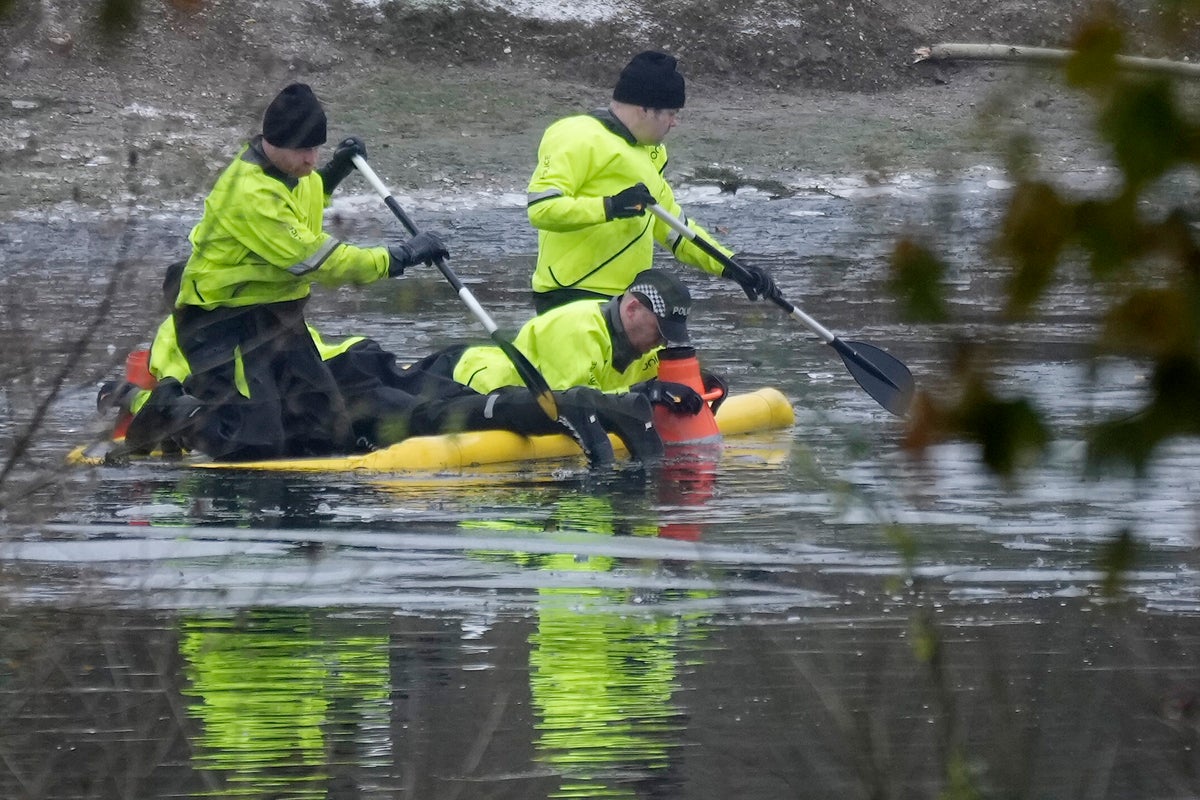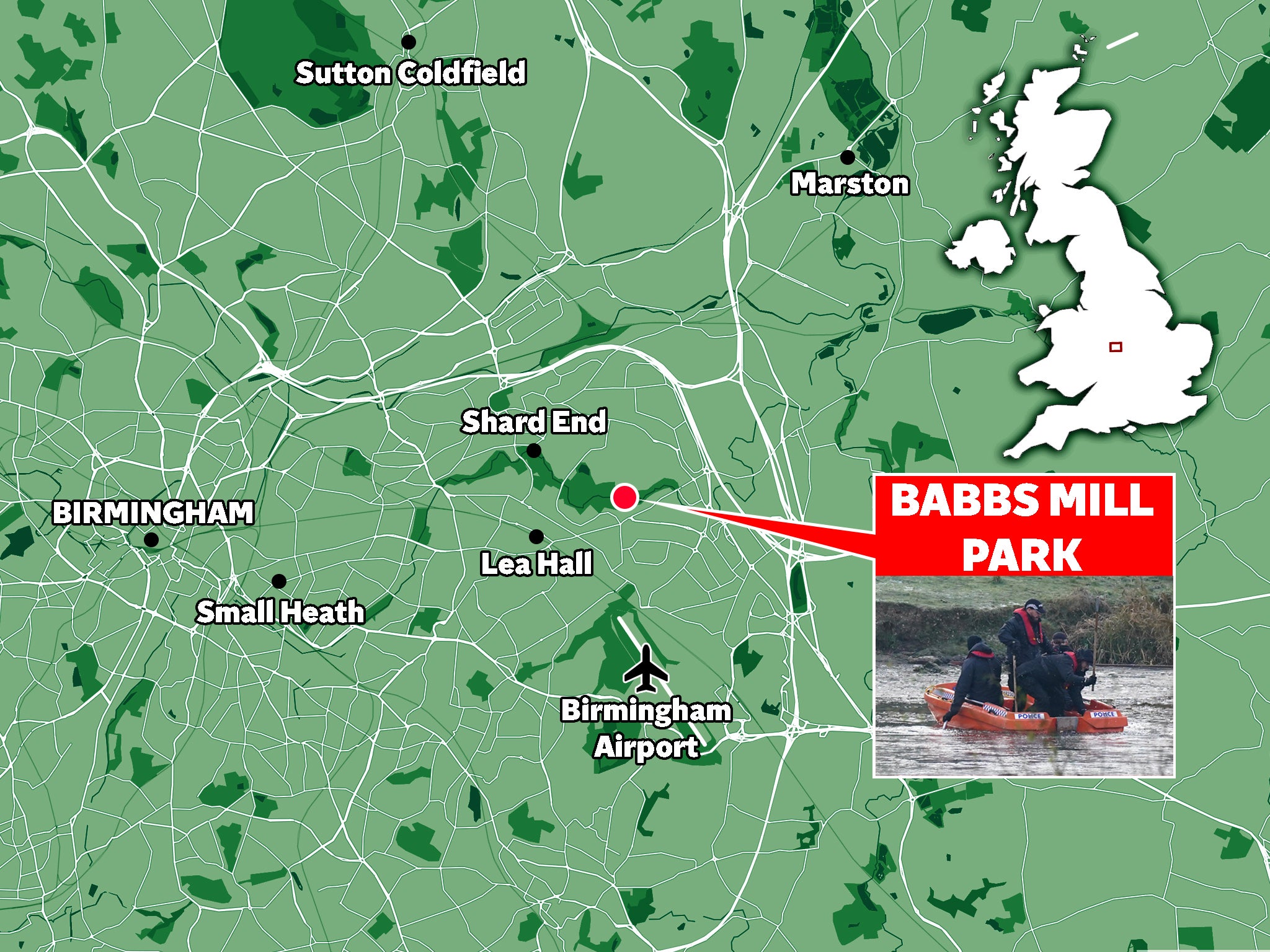
The tragic deaths of three boys after they fell through the frozen surface of Babbs Mill Lake in Solihull in the West Midlands on Sunday afternoon provides a distressing reminder of the dangers of winter weather.
The victims, aged eight, 10 and 11, fell into the icy water after attempting to rescue a friend whose leg had become trapped in the water, according to Tommy Barnet, 10, who witnessed the accident.
When the boys were eventually hauled out of the lake by specialist water-rescue trained fire crews, they were found to be in cardiac arrest and were sent to hospital in Birmingham.
The three were pronounced dead on Monday while another child, aged six, remains in hospital in a critical condition.
A police officer was also treated for hypothermia after trying to punch through the ice in an effort to save the children.
Temperatures are thought to have plunged to 1C in the area at the time of the incident, falling to -3C overnight.
Richard Stanton, area commander for West Midlands Fire and Rescue Service, said: “We know that the weather forecast for the next few days is expected to be bitterly cold, please, adults and children alike, stay away from open water, under no circumstances venture on to ice regardless how thick or safe you think this ice may be.”
A candlelit vigil was held on Monday evening, where an aunt of one of the deceased described the tragedy as a “nightmare that two families can’t wake from.”
As Commander Stanton suggests, the public is advised to stay away from bodies of open water in the current conditions, no matter how solid its frozen surface might appear.
According to the Royal National Lifeboat Institution (RNLI), advising on cold water shock: “Anything below 15C is defined as cold water and can seriously affect your breathing and movement, so the risk is significant most of the year.”
The RNLI goes on to explain: “Cold water shock causes the blood vessels in the skin to close, which increases the resistance of blood flow. Heart rate is also increased. As a result the heart has to work harder and your blood pressure goes up. Cold water shock can therefore cause heart attacks, even in the relatively young and healthy.
“The sudden cooling of the skin by cold water also causes an involuntary gasp for breath. Breathing rates can change uncontrollably, sometimes increasing as much as tenfold. All these responses contribute to a feeling of panic, increasing the chance of inhaling water directly into the lungs.
“This can all happen very quickly: it only takes half a pint of sea water to enter the lungs for a fully grown man to start drowning. You could die if you don’t get medical care immediately.”

The RNLI states that it is crucial to remain calm should you accidentally fall into cold water and advises individuals to take a minute to compose themselves and keep still rather than immediately attempting to swim.
By relaxing and floating, you will be able to catch your breath and regain control of your breathing, which is vital before attempting to swim for land or call for help.
Anyone considering entering British seas and rivers at any time of the year is strongly advised to check the weather forecast before proceeding and to wear a wetsuit and carry a flotation device.
“Our seas and rivers are cold enough to leave you helpless in seconds,” the RNLI warns.
“Treat water with respect, not everyone can be saved.”

.jpg?w=600)





